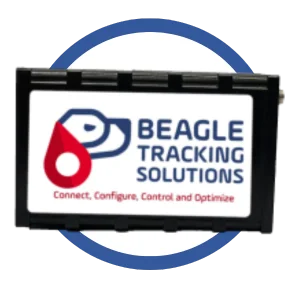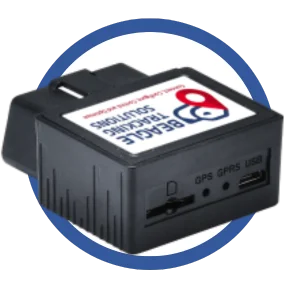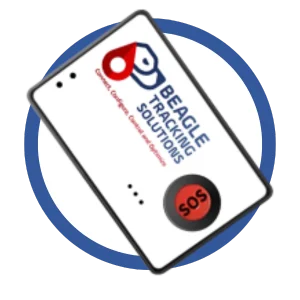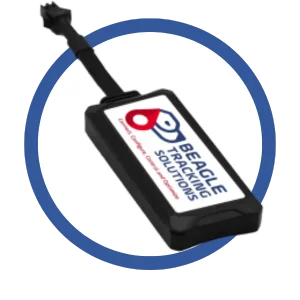The Philippines has about 7,641 islands, making getting around a bit tricky. With busy places like Metro Manila and more secluded rural spots, keeping track of vehicles, goods, and people is super important. That’s where GPS tracking PH comes in—it’s changed the game by making navigation and management much easier in the Philippines.
What is GPS Tracking?
GPS tracking uses satellites to accurately determine an object’s or individual’s location in real time. A GPS tracking device uses satellites to determine its location and send this information to a central system or user. This technology is commonly utilized for navigation, tracking assets, managing fleets, and ensuring personal safety. In the Philippines, GPS tracking has become increasingly popular across various sectors, including logistics, transportation, and agriculture, as well as for applications related to personal and public safety.
Importance of GPS Tracking PH
Improved Navigation
Navigating the complicated road systems and regular traffic congestion in cities like Metro Manila presents a difficulty. Real-time traffic updates from GPS monitoring devices enable vehicles to choose the most effective paths and avoid delays.
Enhanced Fleet Management
GPS tracking guarantees improved fleet management for logistics and transportation businesses by tracking vehicle positions, route optimization, and improving fuel efficiency.
Boosting Public Safety
GPS technology is essential in emergency response systems. Ambulances, fire trucks, and police cars outfitted with GPS can respond faster by determining the shortest and fastest routes to incident locations.
Support for Tourism
Tourists exploring the Philippines can use GPS navigation to identify destinations, discover new attractions, and ensure a safe travel experience, even in remote areas.
Agricultural Applications
Precision farming uses GPS tracking to monitor equipment, track livestock, and effectively manage agricultural resources.
Applications of GPS Tracking
Logistics and Supply Chain
GPS tracking ensures timely deliveries and reduces costs by optimizing routes and monitoring vehicle performance. Companies like Lazada, Shopee, and other e-commerce giants rely heavily on GPS to meet customer expectations for fast and reliable deliveries.
Ride-Hailing Services
Grab and Angkas use GPS tracking to link drivers and passengers, assure accurate pick-up and drop-off locations, and improve the client experience.
Public Transport Systems
The integration of GPS tracking technology into public transportation systems is facilitating the provision of real-time updates regarding bus and rail schedules. This advancement is expected to enhance the reliability and convenience of passengers commuting.
Asset and Personal Tracking
GPS devices monitor important assets, such as vehicles and equipment, minimizing the danger of theft. Personal tracking devices have become popular for protecting children and elderly relatives.
Disaster Management
In a country prone to natural disasters, GPS tracking helps with disaster response by giving real-time location data for rescue operations and relief distribution.
Benefits of GPS Tracker
Real-Time Monitoring
GPS tracking enables organizations and individuals to monitor assets and vehicles in real time, increasing control and visibility.
Cost Savings
GPS tracking devices help organizations save money by optimizing routes, lowering fuel consumption, and eliminating idle time.
Improved Safety
GPS technology improves safety by allowing quicker emergency responses and reducing the risks associated with lost or stolen assets.
Enhanced Productivity
Fleet operators may better manage their schedules, resulting in on-time deliveries and more overall productivity.
Better Decision-Making
GPS tracking data can provide essential insights into operations, planning, and strategy.
Challenges of GPS Tracking
Infrastructure Limitations
Due to limited internet access, GPS tracking devices may be ineffective in rural and remote areas.
High Initial Costs
For small enterprises, installing and maintaining GPS tracking devices may necessitate a substantial investment.
Privacy Concerns
GPS tracking technology raises concerns regarding the potential misuse of location information and data privacy.
Weather Conditions
The accuracy of GPS tracking systems can be affected by severe weather, such as typhoons, which can disrupt satellite signals.
The Future of GPS Tracking PH
Considering the rapid advancement of technology, GPS tracking in the Philippines seems to have a bright future. We may anticipate that GPS tracking features will be enhanced by innovations like advanced mapping systems, Internet of Things (IoT) connectivity, and AI integration. These advancements will effectively address existing challenges while unlocking new opportunities across various sectors.
AI-Powered GPS Systems
Artificial intelligence (AI) can improve GPS tracking by predicting traffic patterns, recommending the best routes, and improving decision-making.
Integration with Smart Cities
Implementing smart city technologies, such as GPS tracking, can greatly benefit public transportation, traffic control, and city planning.
Expansion into New Industries
Many sectors are expected to use GPS tracking for various purposes, including transportation, healthcare, retail, education, and logistics.
Improved Accessibility
The reduction in the cost of GPS devices, combined with the emergence of affordable subscription models, will render GPS tracking accessible to a broader audience, including small enterprises and individual users.
Conclusion
GPS tracking has become a game-changer in the Philippines! It’s helping with everything from navigation and fleet management to keeping people safe. It’s making things a lot easier and more reliable for everyone! Its advantages exceed its disadvantages; thus, companies and people should make this investment regardless of some challenges. GPS tracking will become increasingly important as technology develops to promote efficiency, safety, and creativity in many Philippine areas, including transportation. To optimize the advantages of this transformative technology, organizations considering implementing GPS tracking should prioritize user training, choose reliable providers, and address privacy concerns.
FAQ
What happens if my GPS tracker is stolen or damaged?
Contact the customer support immediately. They can help you deactivate the stolen tracker and replace it.
How can I purchase a GPS tracker?
You can reach us via our website: beagletracker.com. We are here to help you choose the right GPS tracking device.
Can I track my vehicle outside the Philippines?
Yes, as long as the GPS device has cellular coverage in the area. Roaming charges may apply for international use.
Can GPS Tracking monitor driver behavior?
Yes, advanced GPS trackers detect speeding, harsh braking, and idle time to improve driver safety and efficiency.
How does GPS Tracking improve fuel efficiency?
By optimizing routes, reducing idle time, and monitoring fuel consumption, GPS tracking helps lower fuel costs.



